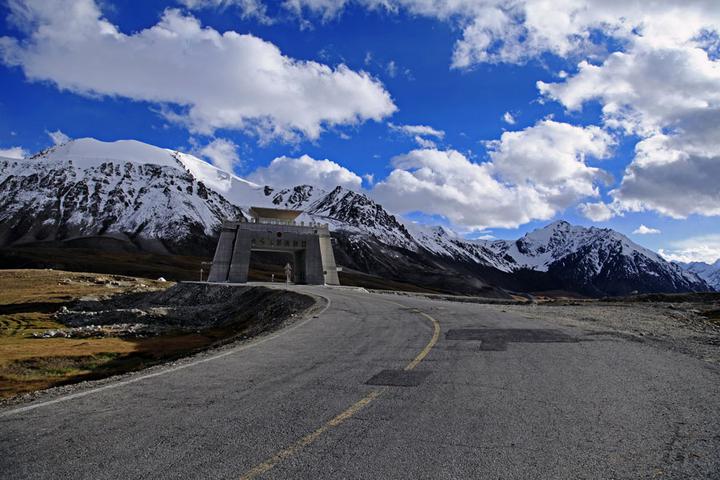Author: Prof. Engr. Zamir Ahmed Awan, Founding Chair GSRRA, Sinologist (ex-Diplomat), Editor, Analyst, and Non-Resident Fellow of CCG (Center for China and Globalization). (E-mail: awanzamir@yahoo.com).
After a three-year hiatus, trade and travel between Pakistan and China through the Khunjerab Pass has been reinstated. Both nations have made necessary arrangements to reopen this border point to facilitate bilateral trade and other activities under the China-Pakistan Economic Corridor (CPEC). The COVID outbreak had, in fact, caused a three-year blockade of passengers and goods transportation via the land link route passing through the highest pass in the world, the "Khunjerab Pass."
Since 2016, an agreement has been in place, which allows trade and travel activities between the two countries through the Khunjerab Pass to take place from the 1st of April to the 30th of November, every year. This arrangement has helped the local communities on both sides to enhance their livelihoods and boost economic activities. The impact of this arrangement was quite apparent in terms of improved economic conditions and reduced poverty levels.
Due to the remoteness, high altitudes, extreme weather conditions, and less populated areas of these border regions, both communities faced similar challenges. However, the agreement facilitated them to improve their standard of living and eradicate poverty.
A daily bus service from the Sost Valley of Gilgit-Baltistan to Xinjiang province in China was established under the CPEC framework, which operated successfully from November 2016 until November 2019, when it was suspended as part of measures to contain the COVID-19 pandemic. However, with the situation improving, there has been increasing demand from the people of Gilgit-Baltistan to reopen the border point for travel and trade. Closure of the border had rendered thousands of people jobless, as 70% of the local population depended on border trade for their livelihood. Reopening the border trade will not only boost the local economy in Gilgit-Baltistan but also lead to an increase in the volume of bilateral trade between Pakistan and China.
Minister of State for Foreign Affairs Hina Rabbani Khar has welcomed the reopening of the CPEC activities and assured the public that the government is working towards removing all hurdles in the way of bilateral trade. Nevertheless, there is a need to speed up the process of eliminating hurdles through regular and meaningful consultations between the two countries' Foreign Offices and other relevant ministries.
The resumption of trade and travel activities between Pakistan and China through the Khunjerab Pass has been welcomed by the local communities on both sides, who hope to benefit from enhanced economic opportunities. This development is expected to have a positive impact on the China-Pakistan Economic Corridor (CPEC) and Pakistan's overall economy, while also providing opportunities for cooperation with neighboring states such as Afghanistan, Iran, and other countries in central Asia and Eurasia.
With the recent advancements in infrastructure projects in Pakistan, the CPEC has become increasingly important and is playing a vital role in economic activities in the region. Entrepreneurs on both sides should seize the opportunity to enhance economic activities, and efforts should be made to upgrade the infrastructure to keep the route open throughout the year. Despite the major hurdle of high altitude and extreme weather, modern technologies should be utilized to gradually transform this route into a year-round usable one. China's advanced technologies and skills in similar areas can be of assistance in this regard.
In addition to its economic importance, the route through the Khunjerab Pass also has strategic significance in the rapidly changing global political scenario. It provides China with access to the Arabian Sea, which can serve as an alternate route to the Pacific Ocean, leading towards the Middle East, Europe, and Africa.
The Karakorum Highway (KKH), also known as the "Friendship Highway," was conceived by the late General Geng Biao, who served as the Chinese Ambassador to Pakistan in 1956-1959 and later held several senior positions in the Government of China. Construction of the KKH began in the 1960s and was completed in 1978. It has since been upgraded several times, with the most recent upgrade transforming it into a motorway. Only a small segment remains under up-gradation. The KKH remains a symbol of the strong friendship between China and Pakistan.
(ASIA PACIFIC DAILY)
